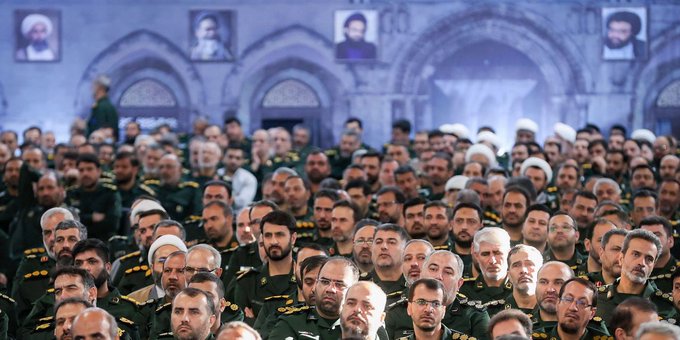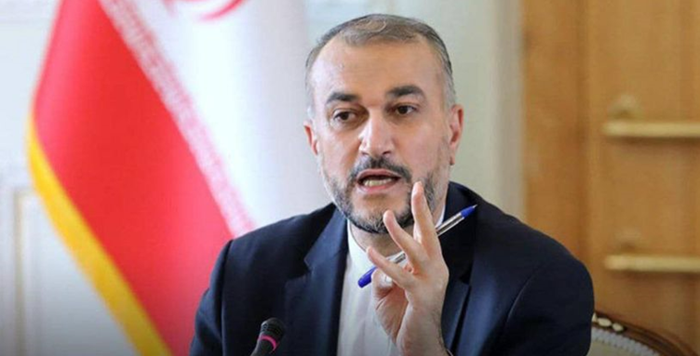
In the midst of growing geopolitical tensions, the Iranian regime is increasingly cornered by both internal challenges and heightened international scrutiny.
The recent drone attack on a vessel in the Indian Ocean, coupled with the formation of a coalition against Iran’s proxy forces in the Red Sea, has significantly escalated regional conflicts. This unfolding situation has the world’s attention, with Iranian officials particularly anxious about the reactions and developments that are rapidly unfolding.
Iran’s Foreign Minister, Hossein Amir Abdollahian, addressed the situation on December 23, 2023. He stated, “We have made it explicitly clear to the Americans that the groups in question, including those in Yemen, operate based on their own judgment and interests. We have not issued any directives for their actions.” Despite these assurances, a sense of unease pervades the regime, starkly contrasting the confidence displayed by leaders of the Islamic Revolutionary Guard Corps (IRGC) and representatives of Supreme Leader Ali Khamenei during Friday prayers.
The underlying fear within the regime is palpable, as observed in the speeches of Amir Ali Hajizadeh, commander of the Revolutionary Guards Air Force. He asserted, “All factions of the resistance axis are united in their cause. We must pool our resources and coordinate our efforts to dismantle the Zionist regime, expel America and its allies, and establish a stable and secure Iran.”

Iran’s Foreign Minister, Hossein Amir Abdollahian, addressed the situation on December 23, 2023. He stated, “We have made it explicitly clear to the Americans that the groups in question, including those in Yemen, operate based on their own judgment and interests.
The escalation of the crisis has raised concerns about Iran’s potential involvement, especially after the Hamas attack on Israel on October 7. While no direct evidence links Iran to this assault, Tehran’s open support for Hamas’s actions reflects its stance. The ongoing war with Hamas has led to thousands of casualties and shows no sign of resolution, with Iran’s support for Hamas potentially transforming this conflict into one of the most devastating in the history of Israel and Palestine.
Amidst this backdrop, Iranian analysts and members of the so-called reformist faction, like Ahmad Zeidabadi, are voicing concerns about the catastrophic consequences of continued warmongering. Zeidabadi highlighted the risk of extreme diplomatic and economic pressures on Iran post-conflict, especially if the regime remains a target. He warned of a dire situation, potentially worse than historical catastrophes like the Mongol invasion, if the regime fails to address the internal dissatisfaction and pressure.
This crisis reflects the strategic choices of the regime post the anti-monarchical revolution. As highlighted by the National Council of Resistance of Iran (NCRI), the regime’s inability to address the aspirations of its populace for democratic reforms, social liberties, and individual freedoms has led to its current predicament. The Iranian regime, unable to detach itself from the self-created crisis in the Hamas-Israel conflict, faces a grim future, marked by increasing international isolation and internal unrest.

MEK Iran (follow us on Twitter and Facebook), Maryam Rajavi’s on her site, Twitter & Facebook, NCRI (Twitter & Facebook), and People’s Mojahedin Organization of Iran – MEK IRAN – YouTu
